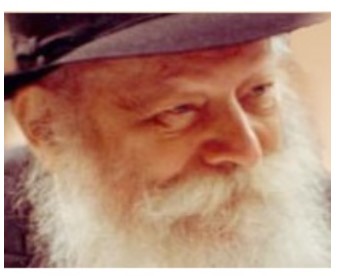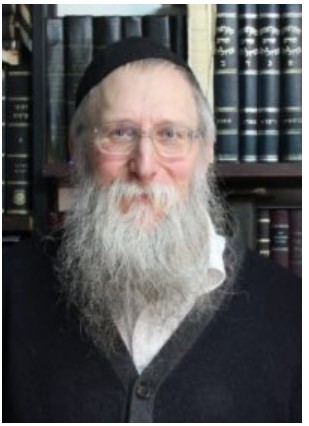בס”ד
How did the Movement Begin? And Where is it Going?
II: SOME MAIN ORAL TORAH SOURCES, AND SUBSEQUENT USE OF THESE TERMS
PART III: SOME MODERN MILESTONES, AND A LOOK AHEAD
The Role of the Lubavitcher Rebbe in the Modern-day Noahide Movement

The Lubavitcher Rebbe initiated an era of worldwide teaching and outreach of the Seven Commandments. He focused attention on the Torah law stated by Rambam in Laws of Kings 8:10. “Moses our teacher transmitted the Torah and the [Jewish] commandments as an inheritance only to Israel… and likewise, Moses our teacher was commanded by the Al-mighty to compel all the inhabitants of the world to accept the commandments that were commanded to the Bnei Noach.”
The Rebbe’s first urgent announcement about this was in 1981.[1] From then on, he frequently repeated it and expounded upon it in many ways.[2] He informed the Jewish people that the time had arrived to fulfill that obligation which was stated by Rambam. This was to be accomplished by responsibly reaching out to non-Jews and persuasively encouraging them to follow their Seven Commandments from G-d that are found in the Book of Genesis.
The obligation to teach and promote the Seven Commandments is upon all Jews. However, he stressed that only Torah-observant Jews should be involved, and it must be done with refinement and thoughtfulness. Certainly, the correct halacha (Torah law) must be adhered to. Additionally, guidance based on Torah’s moral lessons should be provided, and acts of charity, goodness and kindness should be encouraged.
These calls to action reverberated throughout the world. This resulted, directly and indirectly, in steadily increasing numbers of non-Jewish individuals, families and communities who follow this righteous path. They in turn can influence many other non-Jews to observe the Seven Commandments, who will in turn influence others. This will bring an exponential increase of righteousness in the world.
The Impact of Sheva Mitzvot HaShem and The Divine Code, by Rabbi Moshe Weiner

From 19´90 to 20´25, under the guidance of Rabbi J. Immanuel Schochet o.b.m, Ask Noah International (ANI, web site Asknoah.org) was increasing its involvement in the Noahide movement. Then in 20´05, ANI took on the Rebbe’s unfulfilled requests for a halachic codification (“shulchan aruch”) of the Torah laws of the overall Noahide Code. A group of consulting Rabbis nominated the outstanding Torah scholar, Rabbi Moshe Weiner of Jerusalem, to research all of the halachic aspects of the Seven Commandments and their many offshoots. He undertook to do this in consultation with the renown Gaon,[3] Rabbi Zalman Nehemiah Goldberg o.b.m.
His in-depth and incredibly wide-ranging research resulted in the book Sheva Mitzvot Hashem in Hebrew. The main text and selected footnotes were translated into English[4] as The Divine Code (now in the 4th edition). These books provide a comprehensive guide to the fundamental principles and obligatory and permissible aspects of Divine service for righteous non-Jews in modern times.
Another major contribution by Rabbi Weiner is his book Seven Gates of Righteous Knowledge. It covers knowledge of G-d and His unity, and Torah’s universal principles of prophecy, Divine service and prayer. It also covers personal refinement, repentance, reward and punishment, the Messianic Era, and the World to Come.
Challenges and Opportunities Ahead
The expanding Noahide movement is now blessed with many opportunities, while at the same time it is facing ongoing challenges. We will conclude by mentioning a few of them:
1) The opportunities for Noahides to advocate for traditional values, moral principles and integrity in their educational, legal, and governmental systems.
2) The opportunities to create and expand local Noahide community groups, with encouragement and guidance from local Orthodox Rabbis.
3) The challenge of helping righteous Gentiles learn to distinguish Torah-based Noahide observance from residual or deliberate influences from non-Torah religions.
4) The challenge of countering attempts by some individuals and groups to override or disregard the Scriptural prohibition against non-Jews observing the ritual Jewish commandments associated with the Jewish Sabbath.[5]
5) The challenge of providing reliable educational resources about the Noahide Code that will reach more people in more languages, and then providing guidance to those who have questions or misunderstandings.
6) The need for Noahides to leverage their support for the safety and territorial integrity of the entire Land of Israel, and for the effort to hold back the global rise in anti-Semitism.
7) The need to inform all people that we are now in the “End of Days” before the Messianic Era begins, and that rectification of the world through Gentiles observing the Torah’s Seven Noahide Commandments is a necessary preparation for the revealed dwelling of the Divine Presence in this world.[6]
By Dr. Michael Schulman and Angelique Sijbolts
Footnotes:
[1] This was during the Hassidic gathering on the 19th of Kislev at the Lubavitch world headquarters in Brooklyn, New York. See Hisvaaduyos 5742, Vol. 2, pages 520-524.
[2] See To Perfect the World (pub. Sichos In English). It is a partial compilation of translated talks and comments by the Rebbe about disseminating the Seven Commandments to Gentiles.
[3] In later times (from at least the 17´00s), Gaon has been used as a title of honor for Rabbis who achieve world renown for their greatness in Torah learning and scholarship.
[4] To date, The Divine Code has also been published in Russian. Selected parts have also been translated into some other languages.
[5] See https://asknoah.org/essay/the-seventh-day
[6] See To Perfect the World, Part V, chapter 5.
Authored and Copyright © 20´25 by Dr. Michael Schulman and Angelique Sijbolts
Our blogs may contain text/quotes/references/links that include copyright material of Mechon-Mamre.org, Aish.com, Sefaria.org, Chabad.org, and/or AskNoah.org, which we use in accordance with their policies.